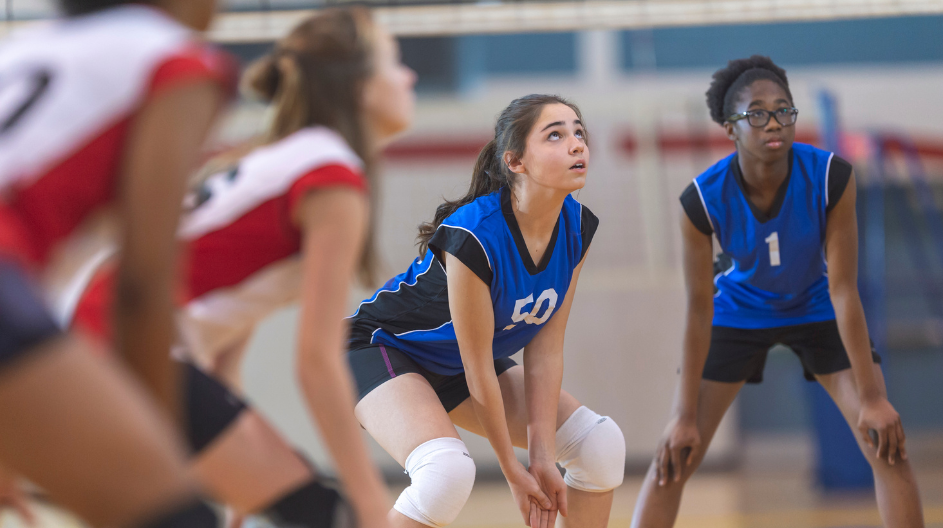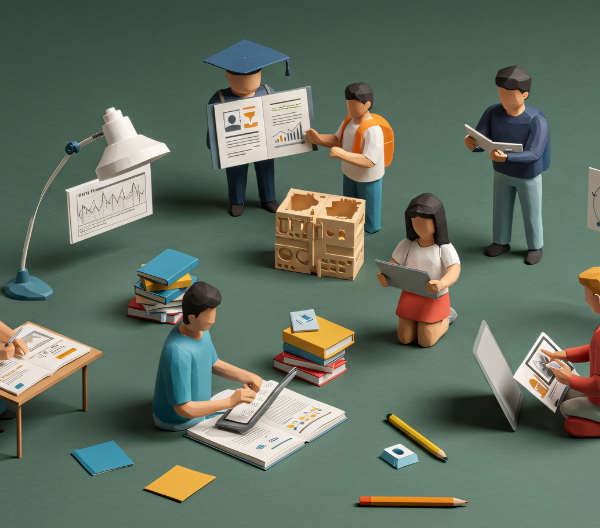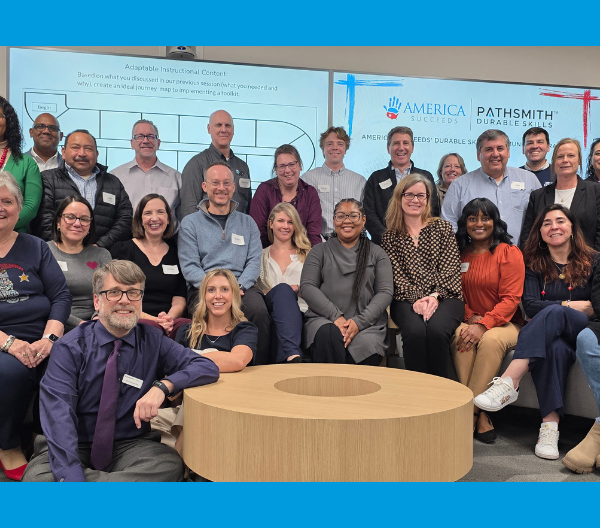This is a guest blog written by Sean Mitton, speaker and author of Student of the Game Mindset, focused on helping student-athletes reflect, connect, and grow through storytelling, mind mapping, and AI.
How many of you have heard your coach say, “You’re not just learning sports skills — you’re learning life skills.”?
For millions of student-athletes, this phrase is all too familiar. And the coaches who say it are right. Sports offer more than just a chance to compete — they’re a training ground for life. Yet too often, the real value of these experiences remains hidden.
In the U.S. today, over 8 million high school athletes and more than 500,000 college athletes are developing durable skills — skills that employers crave: teamwork, resilience, adaptability, coachability, leadership, and the ability to handle adversity. The challenge? Most student-athletes don’t know how to identify or articulate these skills.
From Awareness to Action: Helping Athletes Recognize Their Transferable Skills
If sports build skills for life, the next question is: How do we help athletes recognize and grow those skills intentionally?
There are two key opportunities:
- Proactively — by helping athletes create their story at the start of a season
- Reflectively — by helping them understand their growth at the end
Let’s start with the proactive side.
Rather than focusing solely on stats or skill goals, athletes can begin each season by defining who they want to become — as individuals, teammates, and leaders. That includes:
- The kind of teammate they want to be
- How they’ll lead, communicate, and support others
- How they’ll handle adversity and feedback
- The work ethic and mindset they’ll bring
This shift moves athletes from a reactive mindset to an intentional one. Coaches who embrace this early-season awareness often see stronger culture, deeper growth, and more reflective athletes.
It all begins with one simple question:
“What story do you want to tell by the end of the season?”
That question sparks clarity, ownership, and personal growth. And it lays the foundation for meaningful reflection later — because when athletes start with intention, they’re far more likely to recognize how far they’ve come.
Why Don’t We Reflect? What Happens When We Do
Despite the emphasis on sports building life skills, most student-athletes never stop to reflect on what they’ve actually learned — or how those lessons will serve them beyond the game.
Why not?
- Life moves fast. Athletes are constantly focused on what’s next — the next game, the next goal — leaving little time for reflection.
- They don’t know how. Without the right questions or guidance, it’s hard to break down experiences into skills that translate to life or a career.
- They don’t yet see the value. With their focus on school and sport, thinking about the workforce often feels distant — until it suddenly isn’t.
- Some seasons are tough. Injuries or setbacks make reflection feel optional — or even painful.
But that’s exactly why it matters.
With the right tools and questions, reflection transforms overlooked moments into lessons, skills, and confidence. It gives athletes clarity, self-awareness, and purpose — even from the hardest chapters of their journey.
What’s the Payoff? Four Key Benefits for Athletes
After guiding athletes through a thoughtful interview process — using strategic questions to uncover their unique transferable skills — I take the next step: creating a customized report that shows them just how valuable their experience really is.
Here are four powerful takeaways that athletes receive through this process:
1. A New Level of Self-Awareness
The first benefit is clarity and confidence.
By identifying specific skills they’ve gained — from leadership and time management to adaptability and emotional intelligence — athletes begin to understand just how much they’ve accomplished. Many are surprised by what they see. They walk away saying, “I never thought of it that way before.” And that moment of recognition builds confidence they didn’t know they were missing.
2. A Resume Add-On That Actually Tells Their Story
Most résumés include a single line that says something like:
“Varsity athlete, NCAA Division I Track & Field.”
But that line doesn’t come close to capturing what those years of discipline, teamwork, and resilience really meant — or why they matter to future employers.
That’s why I help athletes go deeper. The second part of the report is a résumé addendum: a list of well-articulated, transferable skills tied directly to the athlete’s experience. It gives them a language they can use — and adapt — based on the job they’re applying for. It’s not about buzzwords. It’s about owning their story.
3. A Visual Mind Map of Their Transferable Skills
This is where things get exciting.
The third component is a mind map — a visual, holistic representation of the athlete’s skills and journey. Most athletes have never seen their development captured in this way. It’s not linear. It’s not boring. It shows how their mindset, challenges, and achievements are all connected in one clear, visual story.
For visual learners, creative thinkers, and even analytical minds, this format is eye-opening. It reinforces the idea that they are more than just their sport — and gives them a new lens to view their strengths.
4. A Gratitude Letter to Someone Who Made a Difference
Finally, we close with something personal: a guided gratitude letter.
So many athletes talk about the impact a coach, parent, or mentor had on their life — but they rarely get a chance to put that gratitude into words. As part of the reflection process, I help them with a short, editable letter template that captures their appreciation, rooted in the specific skills or lessons that person helped develop.
It’s meaningful for the athlete, and it’s powerful for the recipient. For coaches, it becomes part of their legacy. And for athletes, it’s a chance to reflect, reconnect, and close the loop with purpose.
The Ripple Effect: How Everyone Benefits When Athletes Recognize Their Value
While the direct benefits to student-athletes are clear, the impact of this process extends far beyond them. When athletes understand and articulate their transferable skills, it creates a ripple effect that reaches everyone around them — from coaches and parents to institutions and employers.
Coaches: A Legacy That Lives On
Every coach wants to know they made a difference — not just in wins and losses, but in who their athletes became. When athletes reflect on their growth and express gratitude for a coach’s influence, it validates the years of guidance, challenge, and support that coach has given. It’s a reminder that they’ve left a lasting legacy — and that their role extends beyond the field or court.
Parents: Proof That It Was All Worthwhile
For parents, the student-athlete journey can be filled with ups and downs — sacrifices, early mornings, long drives, and endless support. When they see their child emerge not only as a better athlete but as a more prepared, confident, and self-aware individual, it affirms that the investment paid off. Reflection becomes a way to show parents that their child is ready for what comes next.
Institutions: Stronger Outcomes, Stronger Connections
Colleges, high schools, and academies benefit when student-athletes leave with a clear sense of value from their experience. When that value is visible — when athletes can connect their sport to their career — they’re more likely to stay engaged as alumni. That connection opens the door to stronger alumni relations, more authentic storytelling, and even future giving.
Employers: More Than a Résumé — A Ready-Made Leader For employers, this process is a game-changer.
When a student-athlete walks into an interview already able to articulate how they’ve developed leadership, resilience, and communication through sport — they stand out. They’re not just another graduate with a diploma. They’re a growth-minded, team-oriented professional who has already been tested under pressure.
In many cases, this reflection process surfaces qualities like coachability and leadership that might otherwise go unnoticed. It helps employers see the future leader sitting in front of them — and in some cases, can even accelerate the hiring or promotion process.
Carrying the Story Forward
Walker was one of the first student-athletes to go through this reflection process. After 18 years of pouring his energy into his sport, he hadn’t stopped to think about how much he had gained — or how those lessons could shape his future.
When we walked through his story, skill by skill, something clicked. He said:
“I didn’t realize how many skills I had picked up until I saw them all laid out. It gave me a new level of confidence going into the next chapter of my life.”
For Walker, and many others like him, this process becomes a turning point — not just in how they see their experience, but in how they talk about it. And that shift can impact their careers, their relationships, and even how they mentor others.
In today’s world, where AI tools are transforming everything from résumés to interviews, this type of story isn’t just helpful — it’s strategic. The clarity these athletes gain can power everything from job applications and elevator pitches to professional networking and leadership development.
It’s a story they can carry with them — one that grows as they do.
And when they connect with other former student-athletes in the workforce, it becomes a shared language. A way to relate. A way to build trust. A way to open doors that might have stayed closed.
Because in the end…
This isn’t just a sports story — it’s a success story. And it’s only the beginning.
About the Author
Sean Mitton is a speaker and the author of Student of the Game Mindset, as well as two books on the legendary 1972 Summit Series. Over the last 20 years, he’s created over 1,000 mind maps, and taught individuals and organizations the value of visual thinking. A certified mind mapping practitioner and speaker, Sean is passionate about connecting storytelling, reflection, and AI to help young leaders step confidently into their next chapter. If your organization wants to help student-athletes reflect, connect, and grow, reach out to Sean at www.sogmindset.com.




